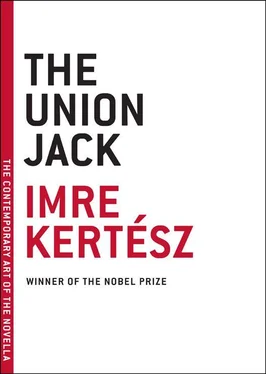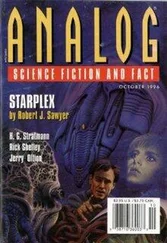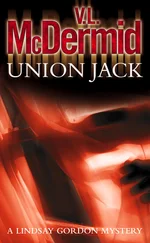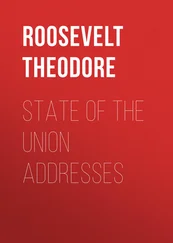seriousness and permanence. For death — if we constantly prepare for it in the course of life as the true, indeed, as a matter of fact, sole task that awaits us; if we rehearse for it, so to speak, in the course of life; if we learn to see it as a solution, an ultimately reassuring, if not satisfying, solution — is a serious matter. But the brick that happens, by chance, to drop right on our head is not serious. The hangman is not serious. And yet, oddly, even someone who has no fear of death fears the hangman. All I intend by all this is to describe, inadequately as it may be, my state, my state as it was then. The fact that, on the one hand, I was afraid, while, on the other, I was laughing, but above all, in some sense, I was confused, or I might even say I reached a crisis point, lost the refuge of my formulations; my life, maybe due to a quickening of tempo or
dynamics , had become ever more unformulable, hence the sustainability of my way of life ever more questionable. Here I must remind you that professionally I was — or ought to have been — pursuing a formulation of life as a journalist. Granted that for a journalist to demand a formulation of life was a falsehood in its very essence: but then, anyone who lies is ipso facto thinking about the truth, and I would only have been able to lie about life if I had been acquainted, at least in part, with its truth, yet I was not acquainted, either in whole or in part, with the truth, this truth, the truth of this life, the life that I too was living. Little by little, I was therefore recategorised in the editorial office from
talented journalist to
untalented journalist. From the moment that I slipped, for a while at least, out of the world of formulability, and thus the sustainability of my way of life, the events going on around me — and hence I myself as an event — disintegrated into fragmentary images and impressions. But the camera lens that captured the jumbled images, sounds and even thoughts was still, agonisingly and irreducibly,
me , only a me that was growing ever more alienated from myself. The diabolical wooden spoon had once again scraped the very bottom of the human soup in the cauldron of
so-called world history in which we all stew. I see myself there, in depressed listlessness, at meetings that stretch out to dawn, where the hounds of hell yap, the whip of
criticism and
self-criticism cracks on my back, and increasingly I just wait, wait for when and where the door will open through which I shall be ejected who could know where. Before too long I was to be stumbling around in rust-tinted dust beneath the interminable labyrinth of pipes of a murderous factory barrack-complex; bleak dawns smelling of iron castings would await, hazed daytimes when the dull cognitions of the mind would swell and burst like heavy bubbles on the tin-grey surface of a steaming, swirling mass of molten metal. I became a factory worker, but at least it was possible, bit by bit, to formulate that afresh, albeit only with the vocabulary of adventure, absurdity, mockery and fear; that is, with a vocabulary congruent with the world around me, and in that way I more or less regained my life once more. That I might have a chance of regaining life
fully , indeed that
a full life might be possible at all —but now that I have already lived this life, now that what still remains of this life (my life) may also be considered as already lived, I must formulate it more precisely, indeed absolutely precisely: that a full life
might have been possible — that is something I only began to suspect when all at once, after the formulations of adventure, I unexpectedly found myself, dumbfounded and fascinated, face to face with the
adventure of formulation . This adventure to surpass all my adventures, however, I have to broach, as I remarked in my preamble, with Richard Wagner, but before broaching Richard Wagner, as I have likewise already signalled, I had to start at the editorial office. When they first “took me on” at that editorial office; when I started to go in, day after day, to that editorial office; when, day after day, I telephoned in to that editorial office from the city hall (having been assigned to that column, the “City Hall” column) the latest city hall news, indeed reports, I formulated this aggregation of facts, and not yet entirely without reason, as “I’m a journalist,” since appearances, and the activity that engendered those appearances, truly did permit me, by and large, to so formulate it. That was my period of naive formulations, of unbiased formulations, when my way of life and its formulation did not yet stand irreducibly opposed to one another, or in an opposition that was reducible solely by radical means. What had carried me into that career, and therefore into that editorial office, was a formulation, a book I had read, that — above and beyond the necessity of my making a “career choice,” so to say, and, yes, above and beyond my irrepressible longing — I might cast off the shackles of parental harassments and a childhood prolonged by education. After stints as a commercial traveller in wines and in building materials had been brought to a close by risible results, indeed quite simply by my having become a laughing stock, then attempts at the printing trade or, to be precise, as a typesetter, had merely introduced me to the experience of futile torment and monotony, quite by chance — if such a thing exists (chance, that is to say), though I personally doubt it — a book came into my hands. This book was a formulation of the life of a journalist, a Budapest journalist who moves about in Budapest coffee-houses, in Budapest editorial offices, in Budapest social circles, pursuing relationships with Budapest women — more particularly, two women, one an aristocratic lady, who was referred to solely by the French brand name of her perfume, the other a girl, a poor, simple, decent creature, palpably finer than the lady of the branded perfume, because she was endowed with spirituality but was born to be oppressed, thereby evoking perpetual twinges of social and metaphysical conscience, so to say — a totally false and falsified formulation, but one that, if memory serves me right, was presented with genuine longing, and thus genuine force of conviction. The book told about a life, a world, that could never have existed in reality, or at best only in formulations, the sort of formulations for which I too was later to strive, for purposes of the sustainability of my way of life, formulations which draw a veil over a life that is unformulable, that grinds ahead in the dark, stumbles about in the dark, lugs the burden of darkness — in other words, over life itself. This book about that journalist, and thus also, to some extent, about journalism itself, held no inkling about journalism in the disaster era, or about disasters at all; the book was
lighthearted and
wise , or in other words, an unwitting book, but a book that with the allure of unwittingness exercised a fateful influence on me. The book may well have lied, but, as I recollect, the lying was certainly honest, and it is highly likely that I was in need of just such a lie at the time. A person always lights upon the lie he is in need of just as unerringly and just as unhesitatingly as he can unerringly and unhesitatingly light upon the truth he is in need of, should he feel any need at all of the truth, that is, of liquidating his life. The book presented journalism itself as a sort of happy-go-lucky pursuit, a
matter of talent , and that accorded fully with the totally absurd and totally unwitting fantasies I spun at that time about leading some sort of happy-go-lucky but still somewhat intellectual life. In some respects I soon forgot about the book but in others, never; I never re-read it, it never again came into my hands, and in the end the book itself went missing somewhere, somehow, and I never looked for it again. Later on, however, as a result of discreetly thorough asking around, I came to realise that the book could have been none other than one of the works of Ernő Szép; more than likely — though this is just an assumption, since I have not corroborated it for myself — his novel
Читать дальше












